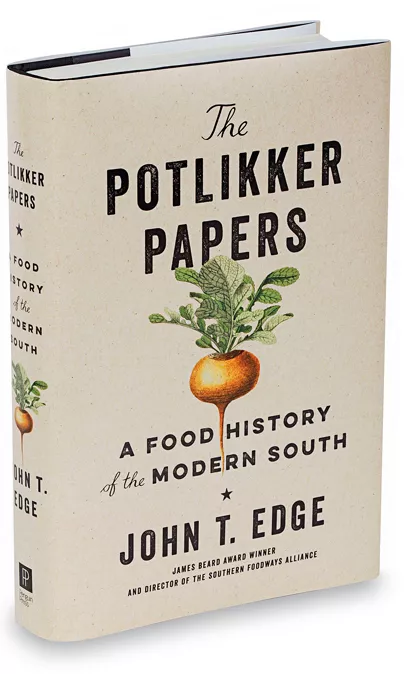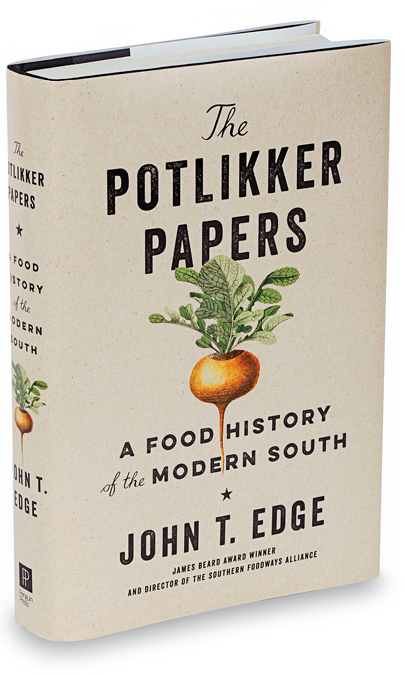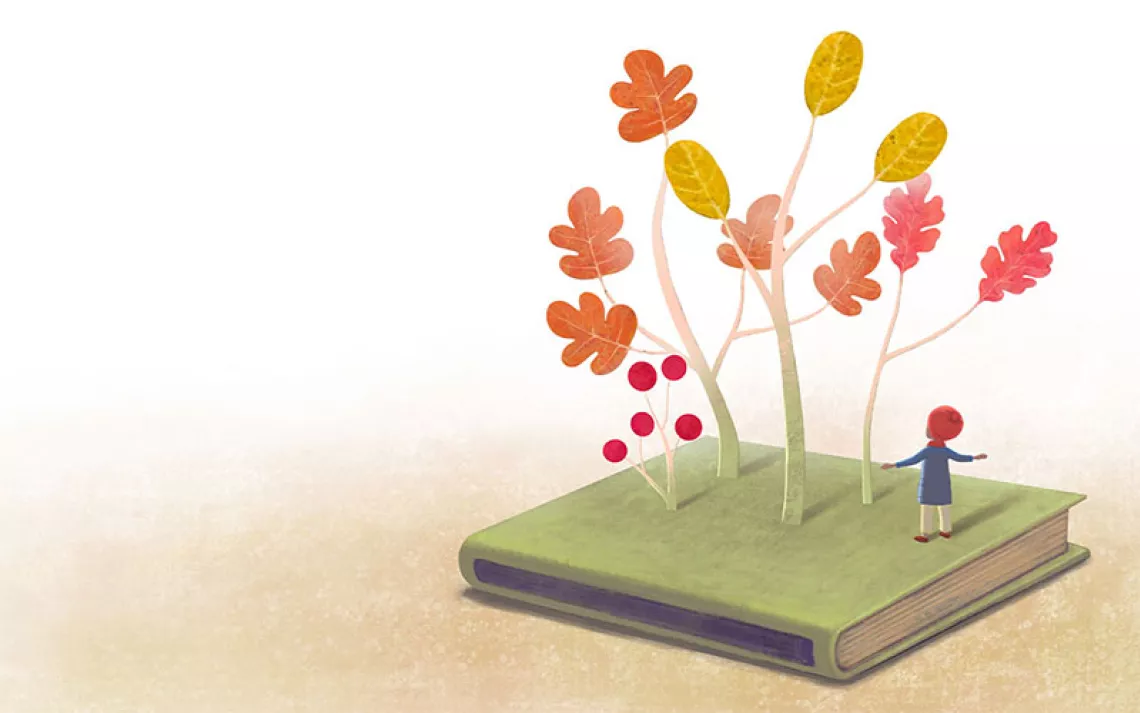Southerners Have a Nose for Change
Food writer and historian John Edge explores how food has shaped the South

 In the antebellum South, "potlikker" referred to the broth that was left over from a pot of greens. The masters ate the greens; slaves got the broth. Today, writes John T. Edge in The Potlikker Papers: A Food History of the Modern South (Penguin Press, 2017), locavore chefs use potlikker to give dishes such as poached mountain trout an authentic Southern umami.
In the antebellum South, "potlikker" referred to the broth that was left over from a pot of greens. The masters ate the greens; slaves got the broth. Today, writes John T. Edge in The Potlikker Papers: A Food History of the Modern South (Penguin Press, 2017), locavore chefs use potlikker to give dishes such as poached mountain trout an authentic Southern umami.
It turns out potlikker is just one of many foods that form a through line connecting everything from racial equity and cultural appropriation to immigration and food trends. Take the 1955 bus boycotts in Montgomery, Alabama, during which people used their own cars to transport African American laborers to work. Drivers needed money for insurance, gas, and tires, but many riders were too hard-pressed to contribute. Cook and midwife Georgia Gilmore organized a club to raise the money by selling home-cooked fried fish and fluted pound cakes. The club inspired more cooks, and together they helped keep cars on the road until the successful end of the 13-month strike.
In The Potlikker Papers, food is political and transformative. A miller in South Carolina harvests heirloom corn from old moonshine stashes. Korean bakers in Alabama wrap sweet potatoes in pastry. A black chef reopens a Savannah, Georgia, lunch counter—where she couldn't have eaten 60 years ago—and launches a successful farm-to-table restaurant.
But the South of today, Edge writes, belongs to his son's generation, "which now weaves new narratives about what it means to be Southern."
This article appeared in the May/June 2017 edition with the headline "The Power of Potlikker."
 The Magazine of The Sierra Club
The Magazine of The Sierra Club







